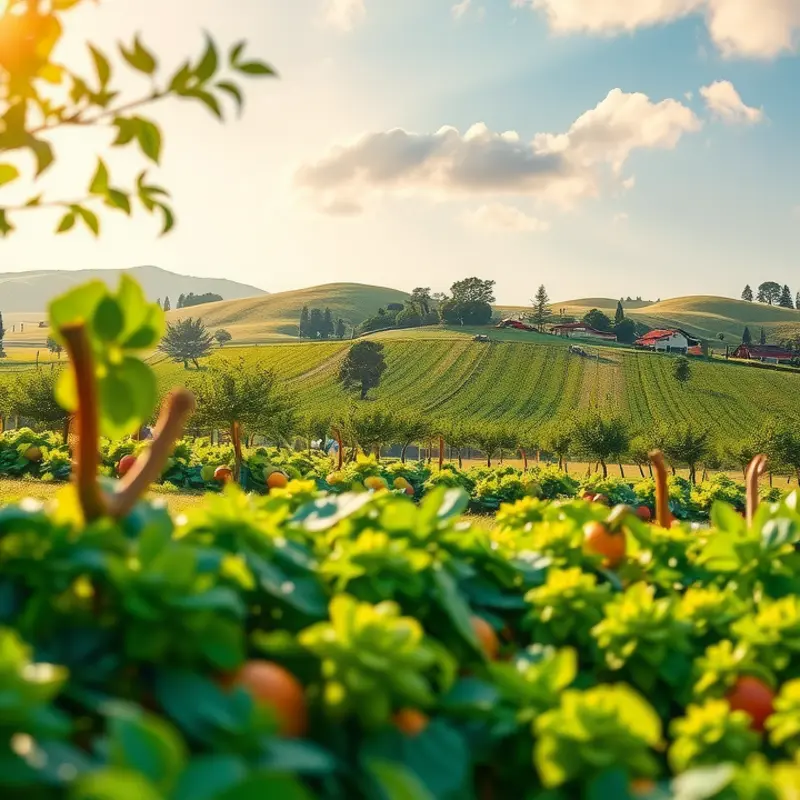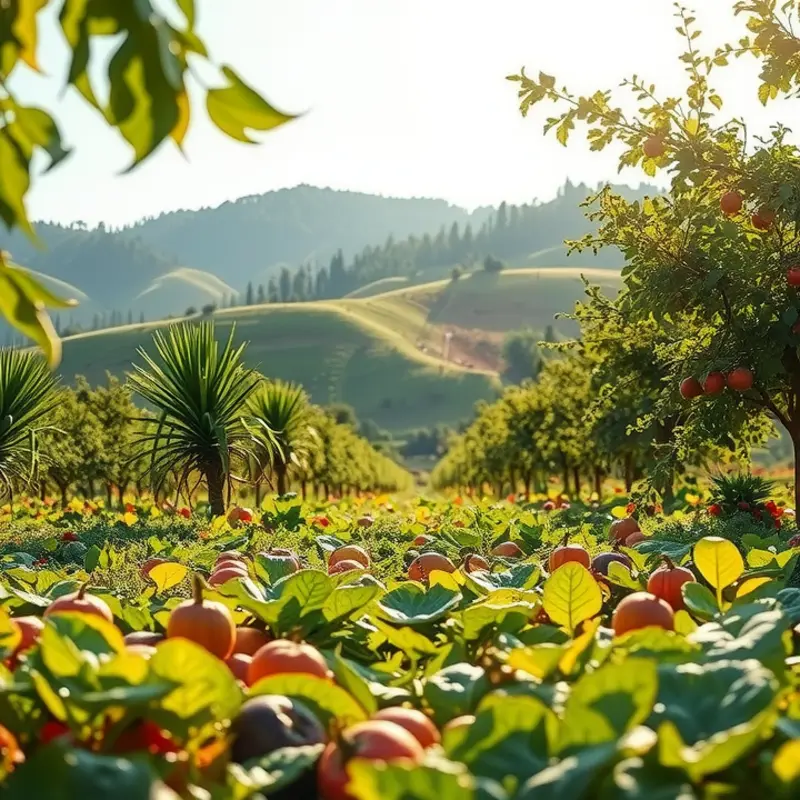Waste-conscious cooking invites individuals to rethink their approach to food by minimizing waste and making eco-friendly choices. With the rising concerns about environmental sustainability, every action in the kitchen can contribute to a healthier planet. From choosing the right ingredients to implementing strategic cooking practices, this guide aims to empower environmentally-conscious cooks to embrace sustainable methods while enjoying delightful meals. Discover how small adjustments can lead to significant environmental benefits.
Mastering Ingredient Selection

Sustainable ingredient selection begins with understanding where our food comes from and how it impacts the environment. Choosing local ingredients significantly reduces carbon emissions from transportation. Supporting local farmers not only decreases your carbon footprint but also invigorates the community’s economy. Additionally, local produce tends to be fresher and more nutrient-dense, having spent less time in transit.
Recognizing the importance of seasonal eating can further enhance sustainability. Seasonal produce often requires fewer resources for growth, as it is cultivated under natural conditions aligned with current weather patterns. Consumption of seasonal foods also encourages diverse eating habits throughout the year and is often more affordable due to its abundance.
Opting for organic products supports practices that reduce carbon emissions and improve soil health. Organic farming avoids synthetic fertilizers and pesticides, protecting waterways and promoting biodiversity. This choice is better for the planet and minimizes your exposure to harmful chemicals.
To cut down on waste, it’s vital to recognize and avoid over-packaged items. Seek out stores that offer bulk purchasing. Bulk buying reduces plastic and paper packaging waste, allowing you to buy the precise quantities you need, which minimizes food waste at home.
Moreover, consider the ecological ramifications of food sourcing. Large-scale agriculture often leads to deforestation, water pollution, and loss of biodiversity. Supporting systems that prioritize regenerative practices can help restore ecological balance.
Embrace whole, unprocessed foods to increase sustainability and improve health. Foods that are less processed require less energy to produce and generate less packaging waste. Transition from processed options to fresh, whole foods contributes to nutrient-rich meals and reduces reliance on industrial food systems.
Engage with the environment by partaking in practices like foraging or visiting farmers’ markets. Foraging connects you directly with nature’s bounty, allowing you to harvest wild edibles responsibly. Farmers’ markets offer a venue to meet the individuals who grow your food, fostering community relationships and trust.
These practices not only emphasize sustainability but also enhance your culinary repertoire and enrich your lifestyle. To learn more about effective food storage that complements a sustainable kitchen, check out guidelines for eco-smart kitchen storage. Mastery over ingredient selection is a powerful step toward waste-conscious cooking.
Creative Ways to Reduce Kitchen Waste

Reducing kitchen waste involves embracing both creativity and a deeper appreciation for the ingredients we use daily. Start by reimagining vegetable scraps as the foundation for flavorful broths. Particularly useful are the peels and ends from onions, carrots, celery, and herbs. Collect these in a freezer-safe container until you have enough to simmer into a rich, aromatic base for soups or stews. Using this approach means less waste and more homemade flavor.
Storing leftovers intelligently can transform them into exciting new meals. Keep a mindful inventory of what’s in your fridge to avoid forgotten containers. Consider storing individual portions in transparent glass containers, allowing you to see and remember them. Repurposing leftover grains, meats, and vegetables into stir-fries, tacos, or casseroles can also save time and prevent spoilage.
Composting offers a fundamental way to return nutrients to the earth. Even if you don’t garden, composting can enrich community gardens or local farms. Learning to compost at home is simpler than it seems; many urban areas offer services or tools to facilitate indoor composting.
Cooking with ‘imperfect’ produce challenges traditional aesthetics but not nutritional value. Bruised fruits can be turned into smoothies or baked goods. Wilted greens make excellent additions to frittatas or stir-fries, and slightly overripe vegetables add depth to sauces or purees. Minimize waste and maximize flavor by embracing these underused ingredients.
Stale bread need not end in the trash. Transform it into crunchy croutons, a bread pudding, or breadcrumbs to coat baked dishes. With a splash of creativity, this often-wasted staple can enhance multiple meals.
Batch cooking is a practical strategy that not only minimizes time spent in the kitchen but also reduces the likelihood of spoilage. Invest a few hours weekly to prepare large quantities of staple ingredients that can be incorporated into varied dishes throughout the week. This method requires less frequent shopping trips, reducing packaging waste and temptation to overpurchase. Explore practical ingredient batching techniques for further inspiration.
Maintaining a clear inventory of pantry items is another vital practice. Know what you have and plan meals around these ingredients. Organize your pantry to ensure that items nearing expiration are used first. This prevents the purchasing of duplicates and ensures the fullest use of everything you buy.
Adopting waste-conscious cooking habits requires commitment and innovation but promises both environmental and personal rewards. Each small change nurtures not only our plates but the planet itself, encouraging a holistic approach to mindful, sustainable eating.
Final words
Embracing waste-conscious cooking not only benefits personal health but positively impacts the environment. By selecting sustainable ingredients and advocating for minimal waste practices, each individual contributes to a more sustainable food system. The methods discussed illuminate the pathway towards a mindful kitchen where creativity meets environmental responsibility. As these small changes compound, the collective impact can reshape food consumption patterns and reduce ecological footprints. Sustainable cooking is a journey, and every step counts towards safeguarding our planet for future generations. Let’s continue forging a deeper connection with our food and the natural world.








